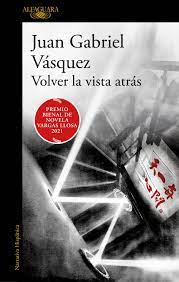Resumen
Este ensayo es una aproximación a la novela Volver la vista atrás (2021) del autor colombiano Juan Gabriel Vásquez (1973) a partir de la postulación de dos –entre otras— interpretaciones posibles, la primera de las cuales –que podría surgir en una lectura apresurada— resulta descalificada por la segunda, la cual postula la presencia de un mito, el mito de la revolución. Dicho mito es considerado desde una lectura psicoanalítica a la manera de la repetición de una letra que insiste en cada época histórica, determinando subjetividades que les son inherentes. Así como la novela sigue el itinerario de la familia Cabrera desde la Guerra Civil Española, a los exilios en República Dominica y Colombia, a la experiencia con la Revolución China y la guerrilla colombiana, entre otras etapas reconocibles del siglo XX, nuestro abordaje a la escritura enfoca los procesos de alienación y emancipación del director cinematográfico, Sergio Cabrera, personaje central de esta narración, tal como resultó para Vásquez de las entrevistas realizadas al mismo y su posterior pasaje a la ficción.
Palabras claves: Juan Gabriel Vásquez, novela colombiana, izquierda lacaniana, emancipación
Abstract
This essay approximates the novel Volver la vista atrás (2021) by the Colombian author Juan Gabriel Vásquez (1973) from the postulation of two –among others— possible interpretations, the first of which – which could arise in a hasty reading – is disqualified by the second, which postulates the presence of a myth, the myth of the revolution. This myth is considered from a psychoanalytic reading in the manner of the repetition of a letter that insists on each historical period, determining subjectivities that are inherent to them. Just as the novel follows the itinerary of the Cabrera family from the Spanish Civil War, to the exiles in Dominican Republic and Colombia, to the experience with the Chinese Revolution and the Colombian guerrilla, among other recognizable historical periods of the 20th century, our approach to writing focuses on the processes of alienation and emancipation of the film director, Sergio Cabrera, the central character of this narration, as it turned out for Vásquez from the interviews conducted with him and his subsequent passage to fiction.
Keywords: Juan Gabriel Vásquez, Colombia novel, Lacanian Left, emancipatio
Fecha de recepción: 20/1/22 Fecha de aceptación: 23/2/22



